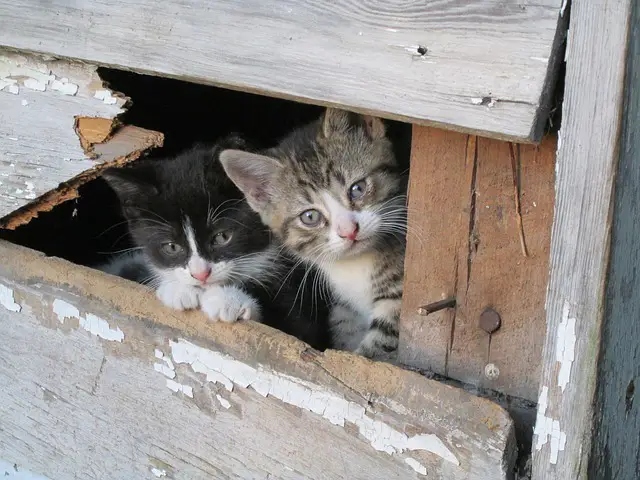Many people who live near farms or have been around rural areas may have seen cats roaming the land. These cats, known as farm cats, can often live in barns and sheds while they hunt for food and keep away pests like mice. But are farm cats good pets? First, let’s examine some pros and cons of owning a farm cat.
Do farm cats make good pets?
Farm cats can make excellent pets as they often come from generations of animals that are well-socialized and confident around people.
However, prospective owners should be mindful of some differences between farm cats and more traditional companion cats.
Farm cats, who have been bred to survive in the wild, may require more patience when it comes to domestication than a traditional house cat.
Depending on their environment, farm cats may also have a higher risk of exposure to parasites or other contagious illnesses due to their hunting lifestyle.
As with any pet adoption, owners should ensure they are taking the proper steps to keep their newly adopted animal—whether a furry Farm cat or otherwise—safe and healthy.
Pros of Owning a Farm Cat
Farm cats generally make great pets since they are typically independent and not as needy as other domestic cats.
They don’t require as much attention from their owners and will usually spend most of their time outdoors hunting for food, exploring the area, or just lounging in the sun.
If you’re out of the house for long periods or travel frequently, your cat won’t be too affected.
Farm cats also tend to be more resistant to diseases than other breeds due to their exposure to different environments, which makes them less prone to getting sick.
In addition, farm cats can often become useful pest-control animals since they enjoy hunting small rodents and insects around their environment. So if you have pests on your property, having a farm cat may provide some relief.
Cons of Owning a Farm Cat
Of course, some drawbacks come with owning a farm cat as well.
- Because these animals live outdoors for extended periods, they usually aren’t as affectionate towards humans compared to other breeds that stay inside all day long.
- Additionally, if you live in an area with feral cats or strays roaming freely, your pet may become aggressive towards them if they get too close to its territory.
- Lastly, since most farm cats don’t get regular veterinary checkups or vaccinations due to their wild nature, they may have trouble adjusting when brought into an indoor environment with other pets or people (such as children).
Conclusion:
Whether or not a farm cat makes a good pet depends on the individual situation. For example, if you live in an area with few feral cats and limited access to veterinary care, having one would likely be beneficial; however, if you need more affection from your pet, then perhaps another breed would better suit your needs. Ultimately it is up to you – do your research and ensure that whatever decision you make is best for yourself and the animal.
[su_box title=”Affiliate Disclosure”]This website is supported by its readers. Please assume that all links are affiliate links. If you make a purchase from one of the links we will make a commission from Amazon. Thank you.[/su_box]




